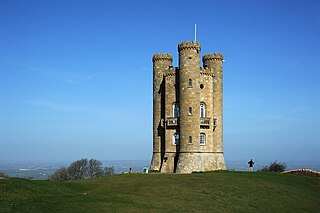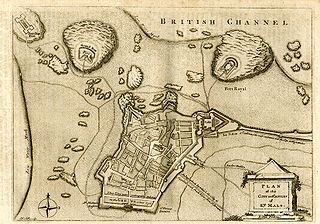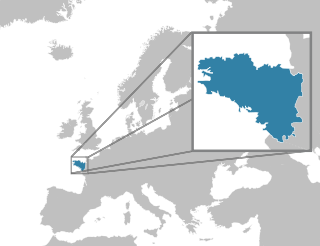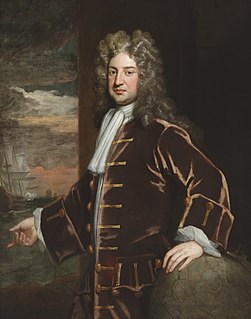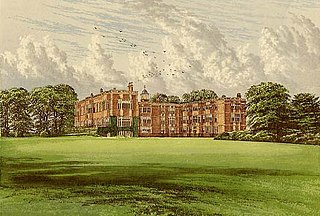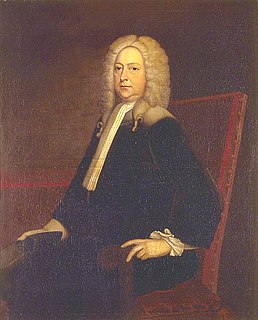
Sir Francis Blake Delaval KB (16 March 1727 – 7 August 1771) was a British actor, soldier and Member of Parliament. He had a privileged and aristocratic education at Westminster School, Eton College and then Christ Church at Oxford University. [1]

The Most Honourable Order of the Bath is a British order of chivalry founded by George I on 18 May 1725. The name derives from the elaborate medieval ceremony for appointing a knight, which involved bathing as one of its elements. The knights so created were known as "Knights of the Bath". George I "erected the Knights of the Bath into a regular Military Order". He did not revive the Order of the Bath, since it had never previously existed as an Order, in the sense of a body of knights who were governed by a set of statutes and whose numbers were replenished when vacancies occurred.

Westminster School is an independent day and boarding school in London, England, located within the precincts of Westminster Abbey. With origins before the 12th century, the educational tradition of Westminster probably dates back as far as 960, in line with the Abbey's history. Boys are admitted to the Under School at age seven and to the senior school at age thirteen; girls are admitted at age sixteen into the Sixth Form. The school has around 750 pupils; around a quarter are boarders, most of whom go home at weekends, after Saturday morning school. The school motto, Dat Deus Incrementum, is taken from the New Testament, specifically 1 Corinthians 3:6.
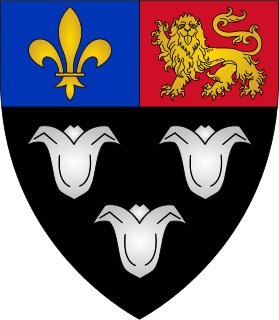
Eton College is an English 13–18 independent boarding school and sixth form for boys in the parish of Eton, near Windsor in Berkshire. It was founded in 1440 by King Henry VI as The King's College of Our Lady of Eton besides Wyndsor, as a sister institution to King's College, Cambridge, making it the 18th-oldest Headmasters' and Headmistresses' Conference school.

